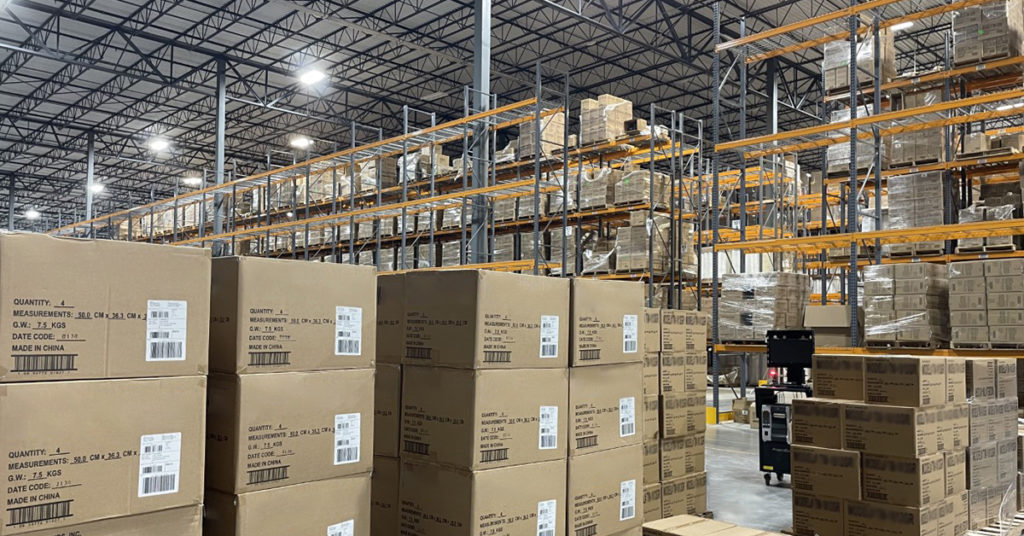Retail compliance is a beast that any supplier for the retail industry has most likely dealt with. Chargeback fines for non-compliance can take a bite out of profits and are so common that many vendors include them as a line item in their annual budget. Developing an effective strategy for managing retail compliance can reduce chargebacks and lead to higher profitability for vendors.
What is Retail Compliance?
Retail compliance, also referred to as vendor compliance, refers to vendors or vendor partners meeting requirements set by their retail trading partner. Each retailer has a different set of processes and expectations for their distribution infrastructure. Requirements can include everything from label placement on packaging to which carrier is used for transportation. A vendor compliance program can be complex and ever-changing while failure to meet requirements risk receiving costly chargebacks (fees). This is one of the main reasons many vendors outsource supply chain operations to a third-party logistics provider (3PL). Attempting to manage retailer compliance without efficient processes, continuous training, and quality checks can damage a supplier’s relationship with their trading partners and cut into profits.
Adhering to Retailer's Vendor Compliance Programs
The best way to adhere to compliance programs is to stay up to date with retailer routing guides. The same retailer may have different requirements for distribution, e-commerce, and dropshipping. Because compliance requirements are ever-changing, it is important to communicate changes to the team handling fulfillment. Internal compliance cheat sheets that outline relevant requirements to a company’s product(s) makes getting answers to questions easier than browsing through a full vendor guide.
Understanding KPI metrics being tracked by retailers can help with vendor performance. These metrics are tracked via vendor scorecards, which can directly impact the success of a supplier. Good marks on a vendor scorecard can be an asset used for gaining trading partners and gives positive information about capabilities. A poor scorecard can deter retailers from forming or retaining a partnership with a vendor. Prioritizing compliance improves relationships with current retail partners and builds a positive reputation within the retail industry.
Why Do Retailers Issue a Chargeback?
To move large amounts of inventory through their supply chain efficiently, big box retailers have created retail compliance programs. When all vendors follow a compliance program, a retailer can automate warehouse processes and require less manual work in their supply chain operations making them leaner and more efficient. Suppliers will receive chargebacks for non-compliance because of the inefficiencies it causes the retailer. For example, typically a retailer requires an Advanced Shipping Notice (ASN) to arrange receipt of products. An ASN provides details of a shipment including what products are arriving, when, and in what quantity. If the retailer does not receive an ASN before the product arrives, they will not have data required for automated receipt. A chargeback is issued due to the disruption and non-standard work created by the non-compliant shipment.
Common compliance issues that result in chargebacks are typically associated with packaging, transportation, purchase orders, labeling, and order quantities. Retailers can get very specific with requirements such as what kind of packing tape is acceptable and what details are necessary on the Bill of Lading. The complexity of requirements can make it difficult to understand why a chargeback has been issued but understanding the “why” is key to avoiding them in the future.
Avoiding Chargebacks for Non-Compliance
Consolidate various retailer requirements in one easy to find location. It is essential to make sure the latest vendor guides are being used for order fulfillment. A common issue with routing guides and data in general is saving or downloading copies to different locations or computers and referencing an outdated version by accident. Keeping vendor guides and/or cheat sheets in a central resource center that is continually updated can help ensure a change in a compliance requirement will be communicated and implemented.
Include retail compliance quality checks in logistics processes. Quality checks may take up extra time but can save suppliers a lot of money in chargebacks. They are particularly necessary if suppliers are inexperienced in dealing with retail compliance or are distributing to new trading partners.
Document evidence for challenging chargebacks. If a chargeback is believed to be incorrect, suppliers have the option to challenge it. However, whether the challenge is successful is largely dependent on how well the associated actions have been documented. Most chargebacks are triggered automatically by technology that tracks non-compliance. If an incorrect chargeback has been issued for a late shipment, the vendor will likely need documentation showing that it left the vendor warehouse on-time.
Handing Retail Compliance Over to Supply Chain Professionals
Experienced 3PLs work with a variety of retailers and are up to date on their vendor guides. In addition to warehousing, distribution, and fulfillment, 3PLs can be experts in vendor compliance with robust technology providing visibility, trackability, documentation, and other elements useful in meeting compliance programs. An increasing number of suppliers are outsourcing their logistics management to 3PLs because of its convenience. Suppliers know they are going to meet retailer requirements, don’t have to worry about handling the logistics involved, and can focus on their core business. 3PLs are also a good option for suppliers with limited resources who are unable to invest time and money into developing their own compliance strategy.
Conquer Vendor Compliance with Beyond Warehousing
Beyond Warehousing is a full-service 3PL partner that makes vendor compliance a top priority. Our team has built and continues to add retailers to an internal wiki that organizes relevant requirements for our clients along with simplified SOPs and step-by-step instructions. We currently distribute to over 120 retail trading partners including Walmart, Target, Amazon, Menards, and others. Beyond Warehousing has over one million square feet of warehouse space at multiple locations throughout the Kansas City Metro with advantages including proximity to the rail, access to an overweight corridor, and fast transit times. To learn more about how Beyond Warehousing can optimize your distribution and retail fulfillment, contact our team today.
Seeking a 3PL partner for retail distribution services?
Contact our team for more information or to request a quote.



